The arts can spread joy and enrich communities, France’s former cultural minister says in conversation with President Aoun
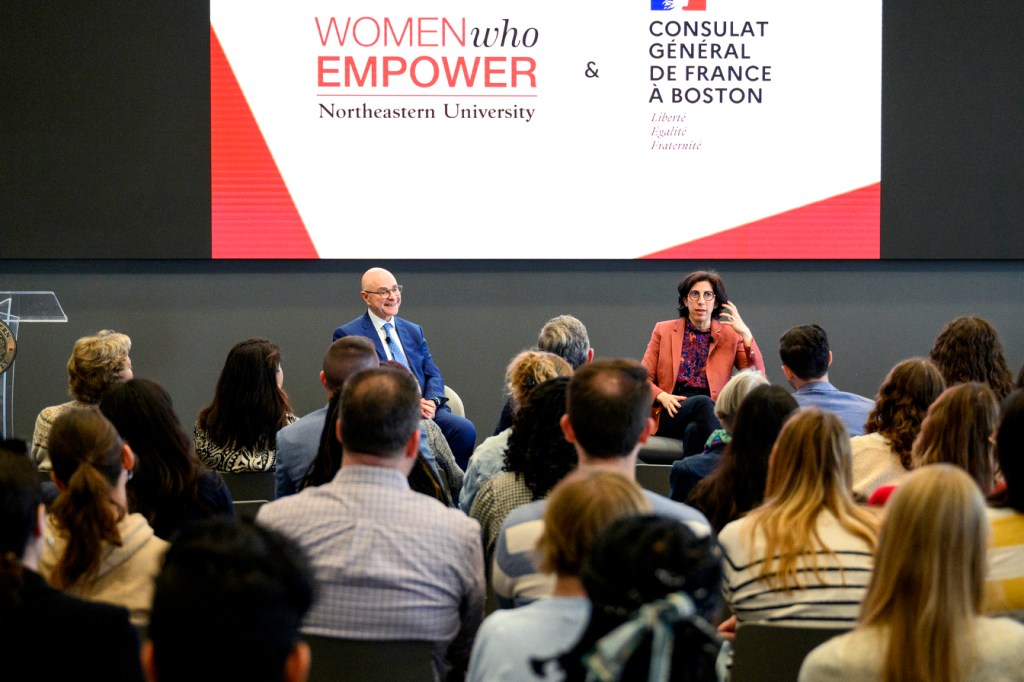
When she was 21 years old, Rima Abdul Malak found herself among an unlikely group helping bring relief to communities in crisis — clowns.
She was working with the nonprofit organization Clowns Without Borders. Its mission was simple — travel around the world and bring laughs and smiles to the faces of families in challenging situations.
That experience helped Malak see the important role the arts play in not only bringing joy to someone’s day, but in shaping communities and enriching culture. She took that to heart when she was appointed to serve as France’s minister of culture in 2022.
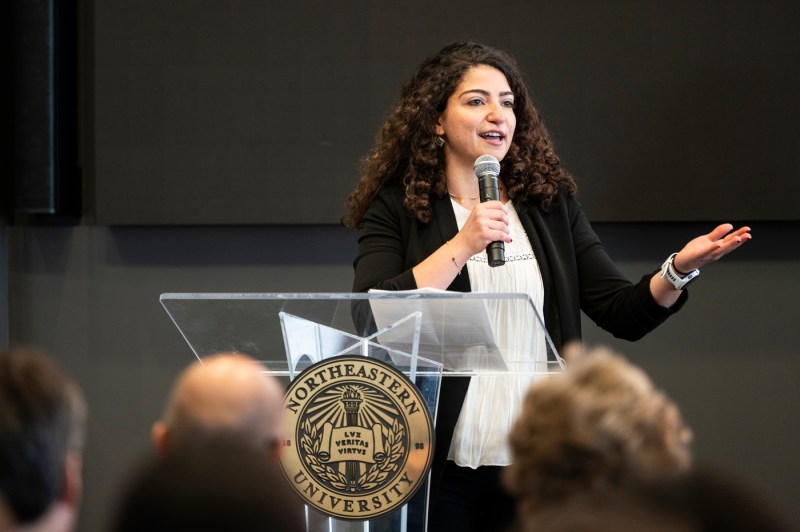
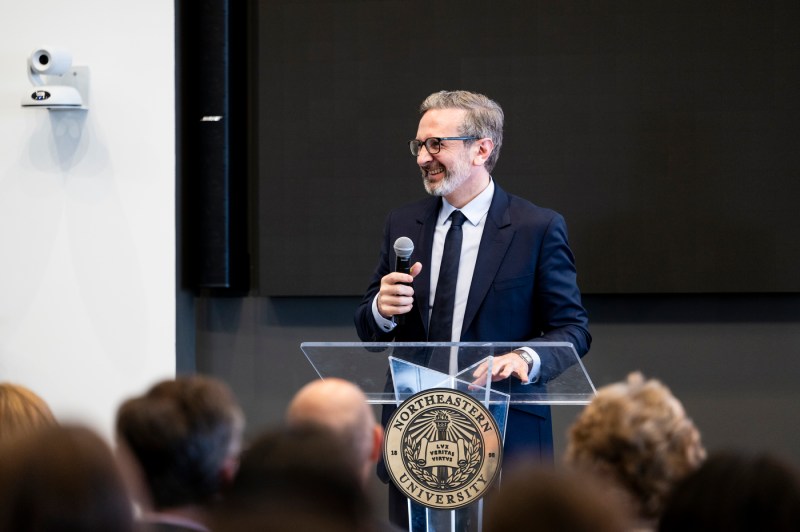
“At Clowns Without Borders, our tagline was ‘It’s serious, but funny,’” Malak said Wednesday afternoon during a conversation with Northeastern President Joseph E. Aoun before a large audience at the EXP research complex on the university’s Boston campus.
Clowns Without Borders, Malak said, visits refugee camps, orphanages, hospitals and social centers.
“We were bringing much more than music and arts,” she said. “We were bringing mental support. We were bringing the link between families and parts of societies that were really divided.”
The discussion between Aoun and Malak was hosted by Northeastern’s Women Who Empower initiative and the Consulate General of France in Boston. The question and answer session was lively and wide-ranging, highlighting the intersections of identity, artistic expression and community.
Aoun said Malak and her work are a shining example of the positive work governments can do, especially in the lives of young people.
“We often hear that government is bad,” Aoun said. “Here you are showing me that the government can be a force for good at many levels.”
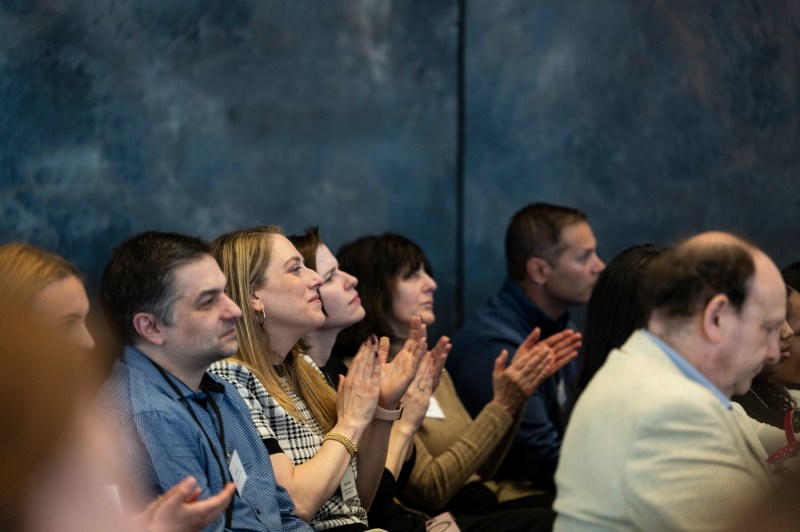
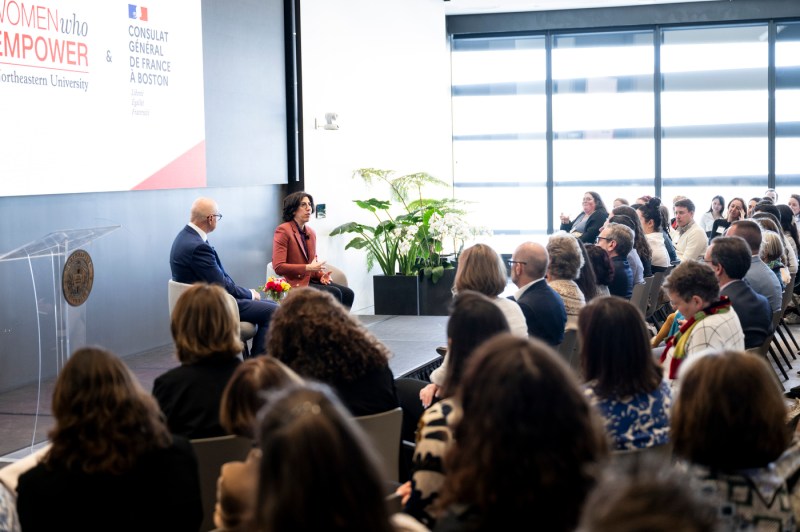
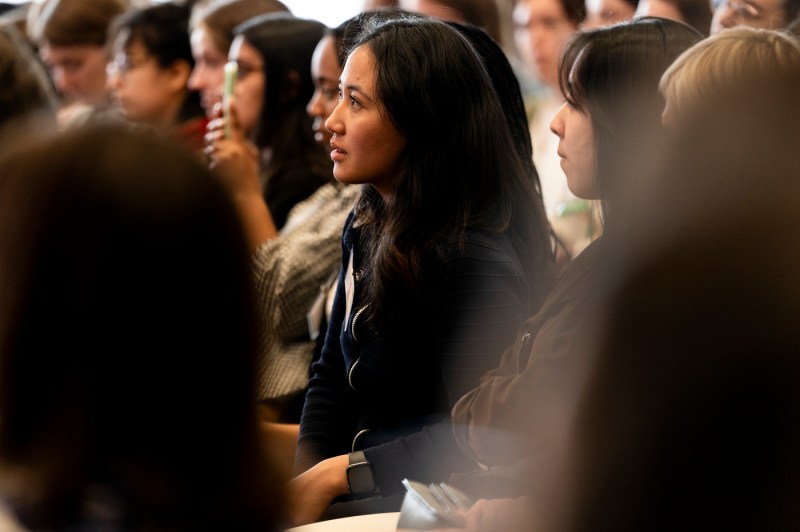
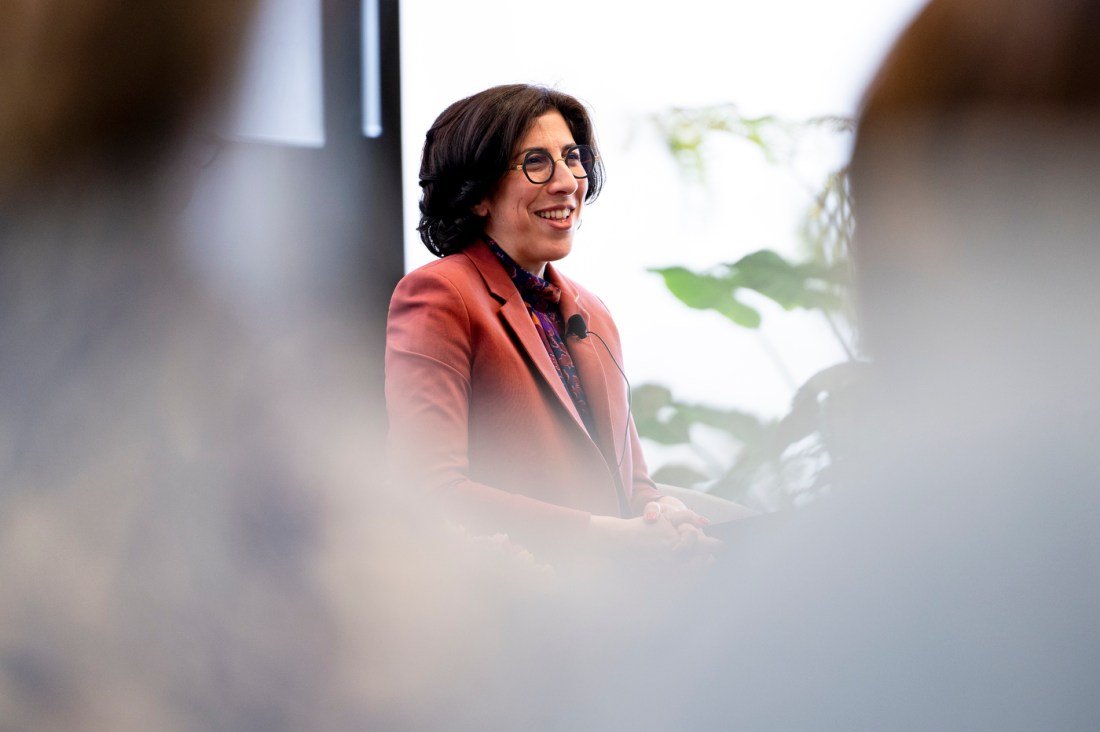
Malak served as France’s minister of culture for two years. Aoun asked her to explain her many responsibilities to the audience.
“We don’t have a minister of culture here in the United States, so what do you do?” Aoun asked.
The mission of the ministry, Malak said, is to support the restoration of the country’s cultural heritage.
“We support performing art spaces, contemporary art museums, all kinds of cultural venues,” she said.
Another important part of the job is supporting arts education for children, Malak said.
As minister, she made it a priority to support cultural life in France’s small villages. After all, she said, they are part of the rich tapestry that make up French culture. She’d attend musical performances in those communities, which often included brass band ensembles dating back hundreds of years.
During the pandemic, those performances came to a standstill, but Malak’s office helped bring them back.
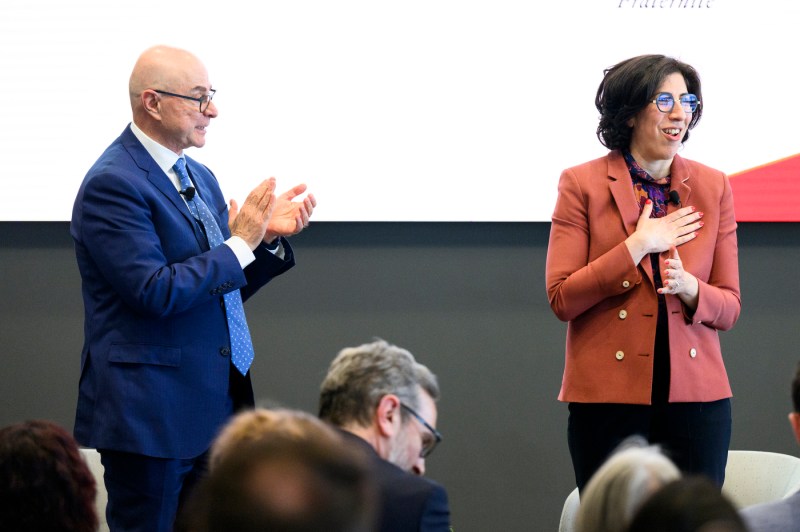
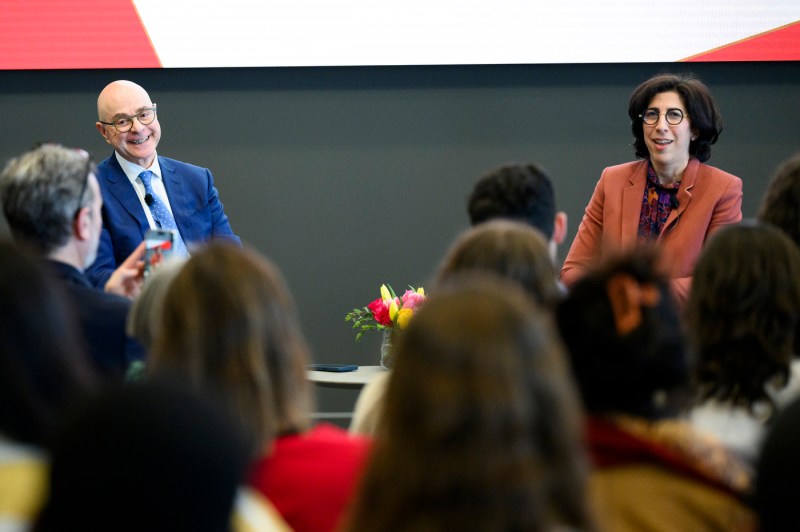
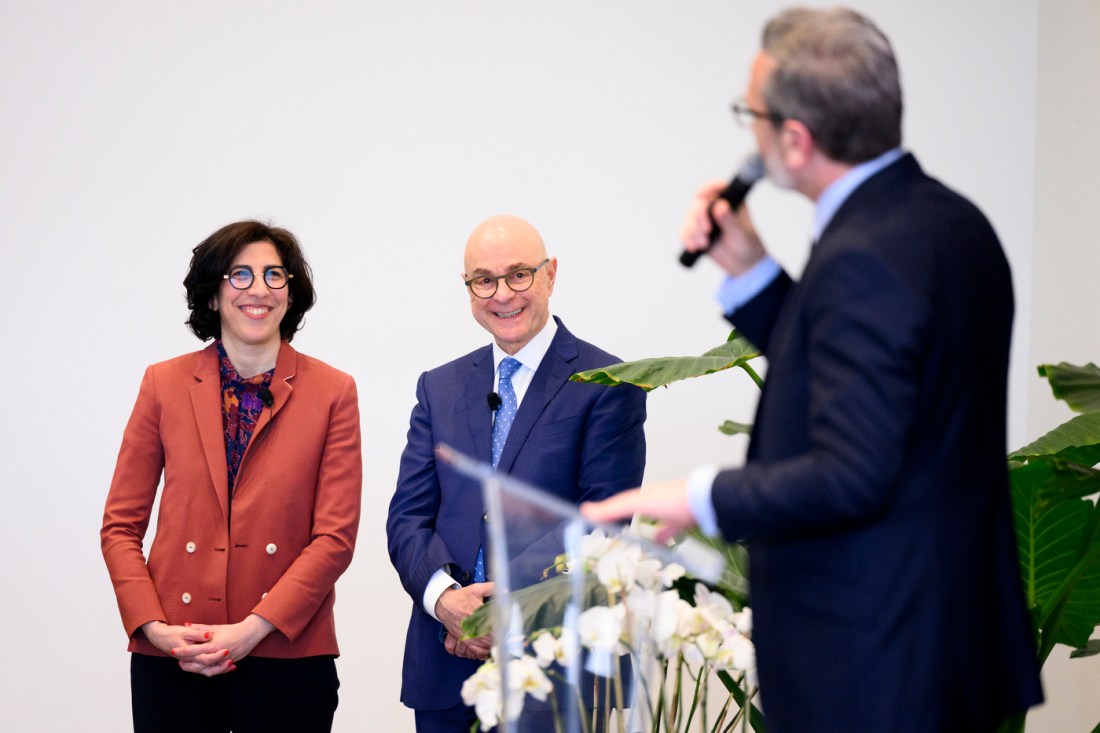
“These villages where I’ve been have never seen a minister in their lives,” she said. “They felt recognized. They felt proud.”
Like Aoun, Malak was born in Beirut, Lebanon, and grew up in the shadows of the country’s civil war. She moved to France with her family as a young girl and aspired to one day be a journalist. Her interests, however, shifted during her college years and she found a calling in helping serve refugees while working for a number of nonprofit organizations.
Right after earning her degree in political science, Malak worked for a Catholic nonprofit in France that sent her to support refugee groups in Israel, Gaza and the West Bank for six months.
After that, she spent six years with Clowns Without Borders before taking a position at the Ministry of Foreign Affairs in France. From there, she went on to work for the city of Paris, working on its cultural team, her first foray into the political scene, she said.
Her career would also take her overseas to New York City, when she landed a job at the French Embassy as part of a young leaders program. She found the United States fascinating, given its vibrant culture and global influence.
While working in New York, Malak took note of the cultural differences between the three countries she had resided in — Lebanon, France and the U.S.
“When I arrived in New York, I felt like a New Yorker in an hour,” she said. “In France, it took much longer. It took maybe five, six years to feel French. In New York City, I felt American. This was such great energy.”
